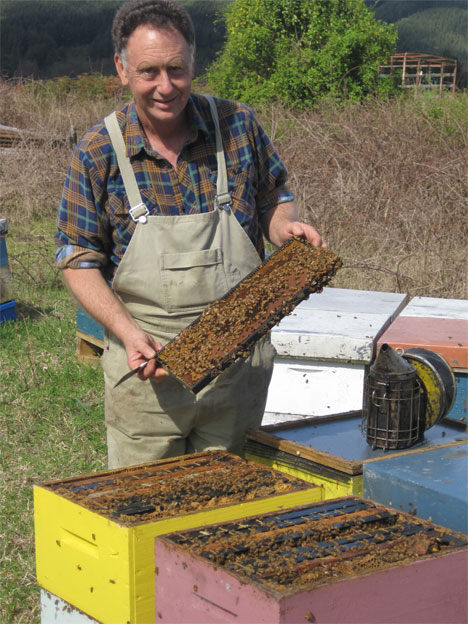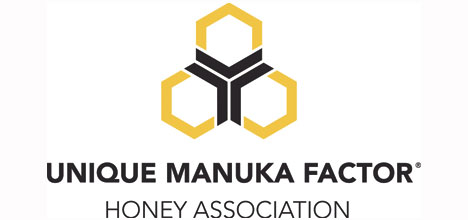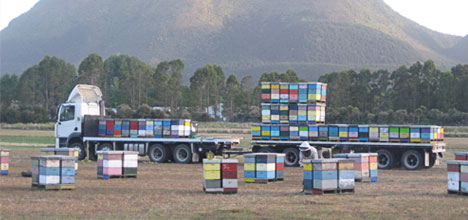Halving the price of honey would rid the industry of many ‘fly-by-night' beekeepers who are risking bringing the country's manuka honey industry into disrepute, says one local manufacturer.
Tauriko-based beekeeping company, Mossop's Honey, managing director Neil Mossop says the price would need to be reduced by 50 per cent to stop misleading producers.
Some of Mossop's 250 million bees off loaded at a honey site.
"It sounds extreme, but a significant drop in price would weed out the cowboys who have entered the industry just to make a quick dollar on the reputation reputable beekeepers have built up over 20 years for the benefits of manuka honey."
Neil's comments follow news that tests by United Kingdom, Chinese and Singaporean laboratories reveal many manuka honey products have none of the claimed active properties, and that some of the honey is not even manuka.
"I wasn't at all surprised that the quality our honey was targeted following the Fonterra milk powder botulism scare as I knew New Zealand honey would come under scrutiny.”
Labour's Primary Industries spokesperson Damien O'Connor says the warnings from Britain about fake New Zealand manuka honey show the Ministry for Primary Industries has again failed to protect producers and assure export markets.
'This is more bad news. New Zealand's brand reputation is already on the line. The quality of New Zealand products is already in the international spotlight following Fonterra's botulism contamination.

Neil Mossop of Mossop's honey which only processes and sells honey from its own beehives.
'Now we have to reassure the world our $120million a year honey industry is not making misleading or illegal claims about its products.”
The Ministry for Primary Industries should have stepped in before Britain's Food Standards Agency took action, says Damien.
'The Ministry just stood by despite the industry acknowledging New Zealand was selling more manuka honey than it produced.”
Labour welcomes moves to test products and establish interim standards, he says.
'This is further evidence the super ministry – formed last year through the merger of the Ministry of Agriculture and Forestry, the Ministry of Fisheries, Biosecurity New Zealand and the New Zealand Food Safety Authority – has failed.
'Food Safety is crucial to New Zealand's economy. A stand-alone agency must be re-established. That is international best practice and we must match that.”
Neil says the closest some of the bees claimed to have produced manuka honey have come to manuka flowers, is when their hives were driven passed it on the roadside. 'Inexperienced beekeepers think putting hives in or near manuka stands will produce manuka honey. This is only the start but unless the honey undergoes approved testing there's no way of knowing for sure because bees don't particularly like manuka flowers and will go to other nectar sources if they can."
He supports calls for more regulation and urges the public to be alert for "imposter" UMF Manuka honey.
Mossop's Honey is 65-years-old and a foundation licence holder of the New Zealand Unique Manuka Factor Honey Association, which uses AsureQuality to carry out annual and random audits of members' honey and processing facilities to ensure product labelled as manuka honey is true to label.
"Genuine honey has a UMF brand label and a licence number on it and people should expect to pay significantly more for it than other honey."
A 500g of UMF manuka honey can sell for up to NZ$90 in the UK.
"Some of the product selling in some markets is well below the bulk price for genuine manuka honey and those buying in honey to pack could not afford to export and sell it at those low prices."
The unique anti-bacterial properties of manuka honey have been scientifically established by Professor Peter Milan of Waikato University, who carried out research for the New Zealand Beekeepers' Association.
"Following his discovery the UMF Association was formed and the brand created. Very high standards are set and as well as a $10,000 registration fee members pay a levy for every kilo of honey they produce which funds the association and the auditing."
Neil says the international reputation of New Zealand manuka honey and the high prices it achieves has attracted many newcomers, particularly Asian investors to the industry.
'Last year 400 new beekeepers entered the industry and I believe many have no idea about beekeeping but have got into the industry because they see it as a golden rainbow. Some companies are building up their business with the intention of attracting overseas buyers."
Mossop's Honey is worth tens of millions of dollars.
"We have a large stake in the industry with three generations and 65 years behind us and too much to lose if the New Zealand industry's reputation is tarnished."
"Mossop's has 250 million workers (our bees), which we want to keep healthy and engaged, pollinating our horticultural and pastoral crops, and producing a range of quality honey, including manuka."

The brand used by members of the New Zealand Unique Manuka Factor Honey Association to show their product has been audited and is true to label.



2 comments
Ieuan
Posted on 28-08-2013 08:45 | By Ieuan
I always buy Mossops Honey because I know it will be true to label. Besides I can't resist a visit to their shop for my ice-cream fix. I always take my overseas visitors there to buy their take-home gifts. My sister loves their super-natural skincare and my grandkids love the bee display. A winning shop in my opinion!
Cow Boys
Posted on 28-08-2013 10:54 | By cherryberryx
Personally the only way to stop Cow Boy Bee Keepers would be for all the Bee Keepers to stop fighting against each other and work together as one team not individuals and make a Board (Example Zespri)that way one seller and one Marketer! One team all working together must be better than lots of individuals fighting and trying to undercut each other??! Speaking as a 3rd generation Beekeeper, my Grandfather would be disappointed in the way the Industry has turned into a money hungry fight, not Bee Keeping for the love of it!!
Leave a Comment
You must be logged in to make a comment.